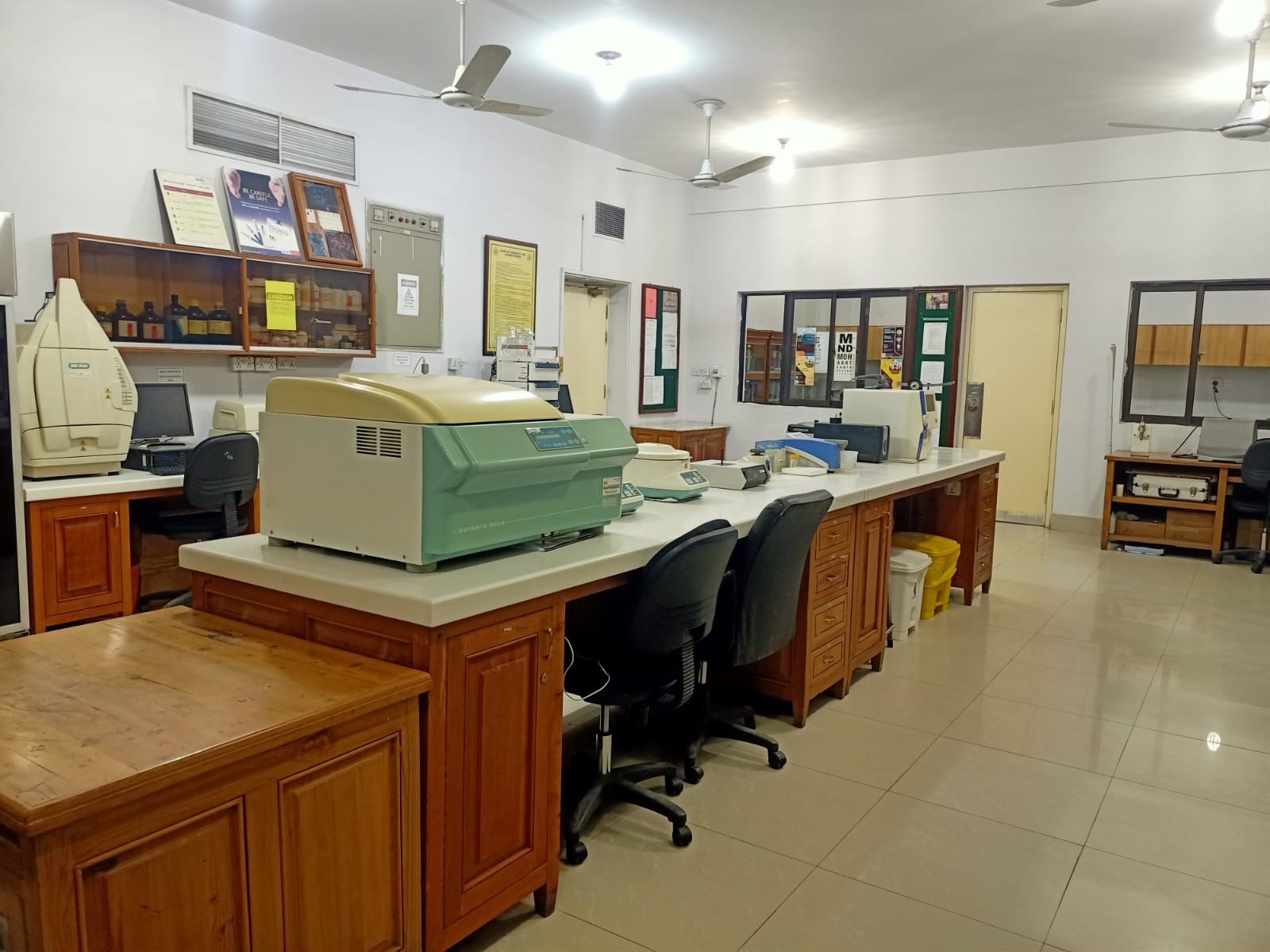
Introduction
The Department of Physiology, University of Health Sciences, stands as a cornerstone of the basic medical sciences, committed to advancing education, research, and innovation. With a strong emphasis on interdisciplinary collaboration, the Department is dedicated to bridge molecular insights with clinical applications, ultimately contributing to improved health outcomes at both national and global levels. The Department of Physiology offers Post-Graduate Programs of Master of Philosophy in Physiology and Doctor of Philosophy in Physiology while it is involved in teaching and training of different undergraduate programs.
Vision
Our vision is to shape Physiology into a premier discipline of health education and research, advancing knowledge through innovation, clinical application, and evidence-based practice. We strive to empower physiologists globally through scientific leadership and transformative contributions to health and medicine.
Mission
Our mission is to strengthen physiology by advancing high-quality teaching, fostering interdisciplinary collaboration, and promoting rigorous scientific inquiry. We are dedicated to translating knowledge into practice, nurturing critical and creative thinking, and driving impactful research that contributes to healthcare innovation. Through these efforts, we aim to prepare future leaders equipped to excel in and transform health and biomedical sciences across diverse academic, clinical, and research settings.
Key Areas of Research Interest
- Non-communicable and metabolic diseases
- Diabetes Mellitus and its complications
- Metabolic syndrome
- COPD and Asthma
- Hypertension
- Vitamin D and Bone Health
- Ageing
- Mother and child health
- Pre-Eclampsia
- Gestational diabetes
- Anemia in children
- Polycystic ovarian disease
- Cancer and tumors
- Breast cancer
- Ovarian cancer
- Pituitary tumors
Facilities and Laboratories
The Department is equipped with two state-of-the-art laboratories to support research and training, including:
- Main Physiology Lab
- Centre of Research in Endocrinology and Reproductive Sciences
These facilities provide hands-on learning and research opportunities for students while serving as a resource for collaborative and interdisciplinary projects. Research collaboration is actively promoted through interaction with public agencies and industry, supported by outreach activities and scientific leadership. Through a comprehensive blend of structured teaching, interactive learning, and independent research, the Department of Physiology ensures the professional and academic development of its students, preparing them for careers in academia, research, and applied sciences.
The Department has a fully equipped Departmental Library having latest editions of over 300 reference books. There is a repository of all approved departmental research synopses and theses.

Courses Offered
Post-Graduate Programs
Master of Philosophy in Physiology
The scheme of studies for the 2-year MPhil Physiology program includes structured distribution of courses within each semester, comprising 30 credit hours.
- Semester 1: includes Physiology Courses and Elective Course
- Semester 2: includes Physiology courses and supporting course
- Semester 3 & 4: includes Research component & Professional Training Component
At the completion of MPhil Physiology program, students will be able to:
- Build advanced knowledge of Physiology and Cell Biology, integrating molecular, cellular, and systemic perspectives with cutting-edge research methodologies.
- Foster critical thinking and analytical skills to evaluate and apply current research, innovations, and emerging trends in the discipline.
- Develop interactive and student-centered teaching competencies that enhance the dissemination of knowledge in academic and clinical settings.
- Prepare graduates to undertake independent and collaborative research addressing priority health challenges, contributing to both scientific advancement and improved healthcare outcomes.
Doctor of Philosophy in Physiology
The PhD Physiology program is a three-year course of study comprising 48 credit hours. The program is spread over three semesters, combining advanced coursework with intensive research training.
First two semesters include:
- Research Methodology & Biostatistics
- Advanced and Applied Physiology
- Laboratory Techniques
- Cellular Pathophysiology
Third semester: dedicated to original research (thesis), enabling students to apply their learning and contribute to the advancement of physiology.
At the completion of the Ph.D. program, students will be able to:
- Apply specialized research techniques, and synthesize relevant literature to support their own investigations.
- Critically evaluate current research findings, methodologies, and experimental approaches to ensure scientific rigor and validity.
- Develop and implement effective teaching strategies, apply interactive pedagogical methods, and communicate complex physiological concepts clearly to diverse audiences.
- Design, conduct, and interpret independent and collaborative research to solve fundamental and clinical problems in the field of Physiology.
Under-Graduate Programs
Undergraduate Physiology teaching is conducted for the diverse range of programs including:
- Bachelor of Dental Surgery (BDS)
- Doctor of Physical Therapy (DPT) – Allied Health Sciences
- Medical Laboratory Technology (MLT) – Allied Health Sciences
- Speech-Language Pathology (SLP) – Allied Health Sciences
- MS Nursing – Nursing Sciences
- Doctor of Pharmacy (Pharm D) – Pharmaceutical Sciences


